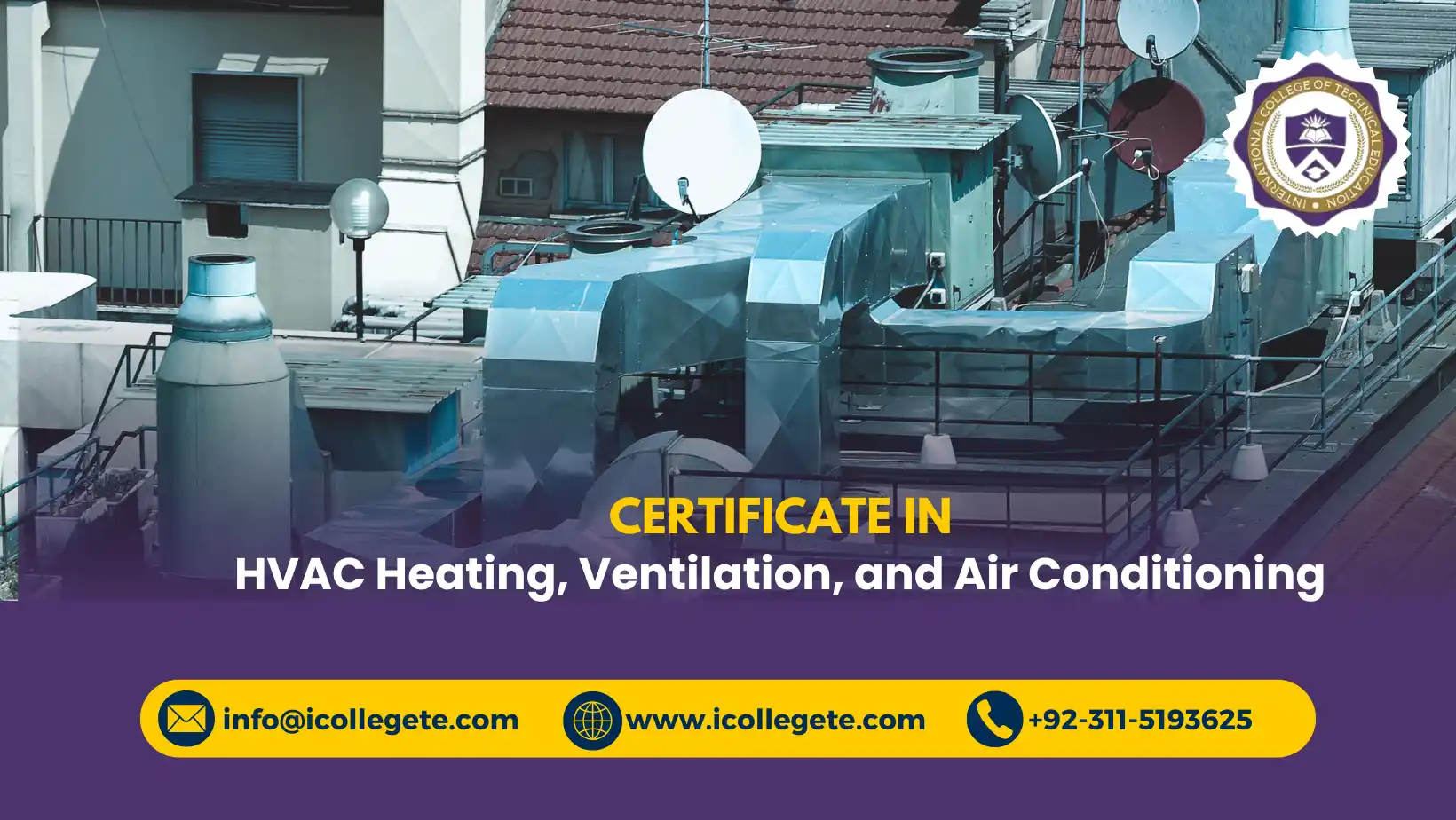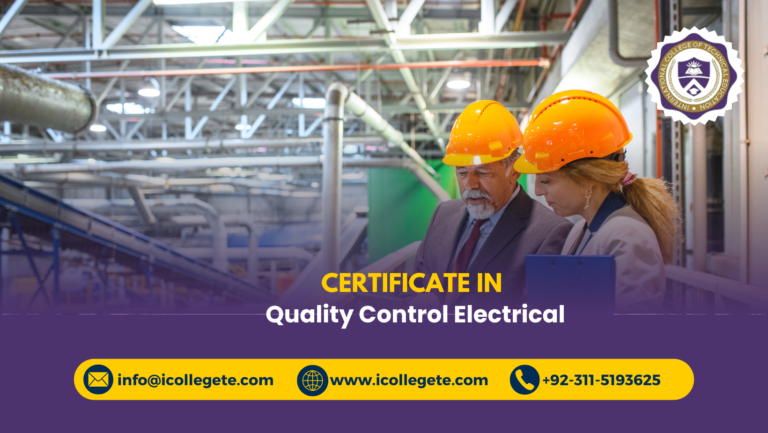In today’s fast-paced world, the demand for efficient heating, ventilation, and air conditioning (HVAC) systems has become more important than ever. Whether it’s for residential, commercial, or industrial purposes, HVAC systems are essential for maintaining comfortable indoor environments. As the need for skilled HVAC professionals continues to rise, taking an HVAC course can open up numerous career opportunities. Rawalpindi, with its growing infrastructure and industrial needs, has become an ideal location for individuals looking to pursue this career path.
The HVAC Heating, Ventilation, and Air-conditioning course in Rawalpindi is designed for individuals seeking to understand and master the skills needed to install, repair, and maintain HVAC systems. This course provides students with the practical and theoretical knowledge necessary to work with various HVAC systems in both residential and commercial settings. With the growing demand for energy-efficient and sustainable HVAC systems, this course equips students with the expertise to meet industry standards.
The HVAC course covers a wide range of topics related to heating, cooling, and ventilation systems. From understanding the principles of thermodynamics to mastering installation and maintenance techniques, this course provides a comprehensive education in HVAC systems. Students will learn how to work with different HVAC technologies, including air conditioning systems, furnaces, heat pumps, and ventilation systems. Additionally, the course emphasizes energy efficiency and sustainable practices, which are essential in today’s environmentally conscious world.
The course duration may vary, but typically it spans several weeks to months, depending on the institution. It includes both classroom theory and hands-on practical training, allowing students to gain real-world experience in installing, troubleshooting, and maintaining HVAC systems.
Study Units
The HVAC course in Rawalpindi is divided into various study units, each focusing on different aspects of HVAC technology. These may include:
- Introduction to HVAC Systems: Basic concepts, types of HVAC systems, and their components.
- Thermodynamics and Heat Transfer: Understanding the fundamental principles of heat flow, pressure, and temperature.
- Refrigeration Cycle: A detailed study of how refrigeration works, including compression, condensation, expansion, and evaporation processes.
- Heating Systems: Types of heating systems, including furnaces, heat pumps, and boilers.
- Air Conditioning Systems: How air conditioners function, their components, and troubleshooting techniques.
- Ventilation Systems: The importance of air quality and the design of ventilation systems to ensure adequate airflow.
- Energy Efficiency and Sustainability: How to design and maintain systems that reduce energy consumption and environmental impact.
- HVAC System Installation and Maintenance: Hands-on training in the installation, repair, and maintenance of HVAC systems.
- Electrical Components in HVAC: Understanding electrical circuits, wiring, and controls in HVAC systems.
Learning Outcomes
Upon successful completion of the HVAC course, students will be able to:
- Understand the fundamental principles of HVAC systems, including heating, ventilation, and air conditioning.
- Identify and differentiate between various HVAC components, such as compressors, condensers, evaporators, and thermostats.
- Demonstrate the ability to install, maintain, and troubleshoot HVAC systems in residential and commercial settings.
- Apply energy-efficient techniques to improve the performance and sustainability of HVAC systems.
- Interpret blueprints and technical manuals related to HVAC installation and repair.
- Understand the importance of air quality and ventilation in maintaining a healthy and comfortable indoor environment.
- Develop knowledge of safety protocols and industry standards in HVAC operations.
Course Benefits
- Career Opportunities: HVAC professionals are in high demand in various industries, including construction, real estate, manufacturing, and hospitality. Completing this course enhances job prospects and provides access to a wide range of career opportunities.
- Hands-on Training: The course provides practical, real-world experience, allowing students to work directly with HVAC systems, which is crucial for gaining the expertise necessary for the job.
- High Earning Potential: HVAC technicians are well-compensated for their skills. With the increasing need for skilled professionals, HVAC technicians can earn competitive salaries, especially those with specialized certifications.
- Job Stability: HVAC technicians are essential for maintaining and repairing HVAC systems. With the constant need for climate control in buildings, the demand for these professionals remains steady, offering long-term job security.
- Sustainability Focus: The course emphasizes energy efficiency, helping students develop the skills to implement eco-friendly HVAC solutions. This is increasingly important in a world focused on reducing environmental footprints.
Who Is This Course For?
This HVAC course is ideal for:
- Aspiring HVAC Technicians: Individuals looking to start a career in the HVAC industry can gain the necessary knowledge and skills to succeed.
- Technicians Seeking Advanced Skills: Experienced technicians looking to upgrade their skills or gain certification in specific areas of HVAC can benefit from this course.
- Engineers and Contractors: Those working in construction, building management, or facilities management who want to expand their knowledge of HVAC systems can also enroll.
- Entrepreneurs: Those interested in starting their own HVAC businesses or offering HVAC services as part of a broader business plan.
Future Progression
After completing the HVAC Heating, Ventilation, and Air-conditioning course, there are various career progression opportunities available:
- Advanced Certifications: Graduates can pursue additional certifications in specialized areas of HVAC, such as refrigeration, energy management, or system design.
- Supervisory Roles: With experience, graduates can move into supervisory positions, overseeing HVAC teams and projects.
- Entrepreneurship: Some graduates may choose to start their own HVAC companies, offering installation, maintenance, and repair services.
- Engineering Roles: For those with a deeper interest in the technical aspects, further education in mechanical or electrical engineering can open the door to engineering positions in HVAC design and development.
the HVAC Heating, Ventilation, and Air-conditioning course in Rawalpindi offers comprehensive training for individuals looking to build a rewarding career in the HVAC industry. With practical training, industry-relevant knowledge, and promising career opportunities, this course provides the foundation needed to succeed in a rapidly growing field. Whether you’re looking to start a career or advance your skills, this course can guide you toward achieving your goals in the HVAC sector.






